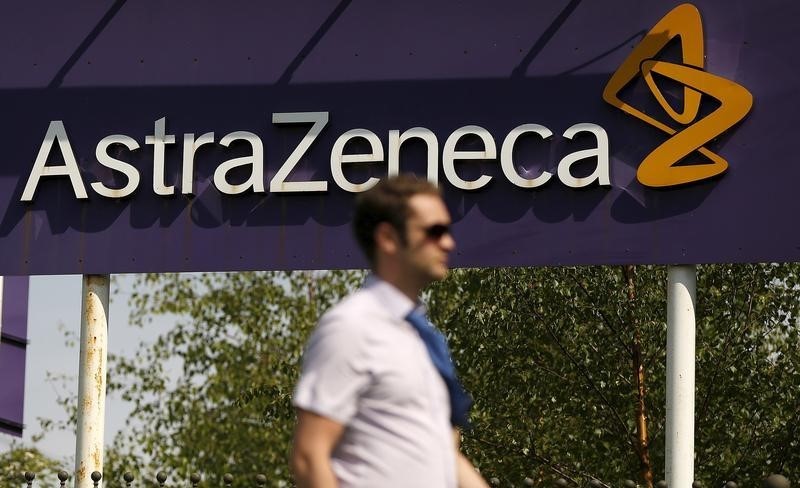By Ben Hirschler and Julie Steenhuysen
LONDON/CHICAGO (Reuters) - U.S. health officials have advised doctors not to use AstraZeneca's (L:AZN) FluMist in the upcoming flu season based on three years of U.S. data showing that the nasal spray vaccine is not effective at preventing influenza.
The decision, announced late Wednesday, was based on a review by the Advisory Committee on Immunization Practices - a panel of experts that advises the U.S. Centres for Disease Control and Prevention - showing the vaccine did not offer adequate protection.
As a result of the move, the CDC said it will be working with manufacturers throughout the summer to ensure there is enough alternative vaccine supply.
FluMist Quadrivalent is currently the only licensed flu vaccine that does not require a shot, making it a favoured choice by parents of young children.
In the past year, among children aged 2 to 17, FluMist was only 3 percent effective, meaning it offered "no protective benefit," the CDC said. That compared with conventional flu shots, which were 63 percent effective against any flu virus among children in this age group.
AstraZeneca said it would take an $80 million (54.07 million pounds) writedown on stocks of its Flumist Quadrivalent vaccine as a result of the decision.
It said the CDC data contrasted with its own studies as well as preliminary independent findings by public health authorities in other countries suggesting the vaccine was 46 to 58 percent effective overall against flu strains during the 2015-2016 season.
U.S. sales of FluMist in 2015 totalled $206 million, or just under 1 percent of group revenue.
The CDC said FluMist made up about 8 percent of the total projected supply of 176 million doses of flu vaccine for the upcoming flu season.
"AstraZeneca is working with the CDC to better understand its data to help ensure eligible patients continue to receive the vaccine in future seasons in the U.S.," the company said in a statement on Thursday.
"The distribution and use of the vaccine in other countries are progressing as planned for the forthcoming influenza season, pending the annual release process from relevant regulatory authorities."
Despite the setback, AstraZeneca said it maintained its 2016 financial outlook of a low-to-mid single digit decline in revenue and core earnings, at constant exchange rates.
However, Deutsche Bank (DE:DBKGn) analyst Richard Parkes said the U.S. vaccine problem would likely drag down consensus earnings forecasts for the current year by around 2 percent and there was a 1-2 percent risk to future forecasts, if the issue was not resolved.
Shares in AstraZeneca gained 0.3 percent while the European drugs sector (SXDP) rose 0.4 percent.
